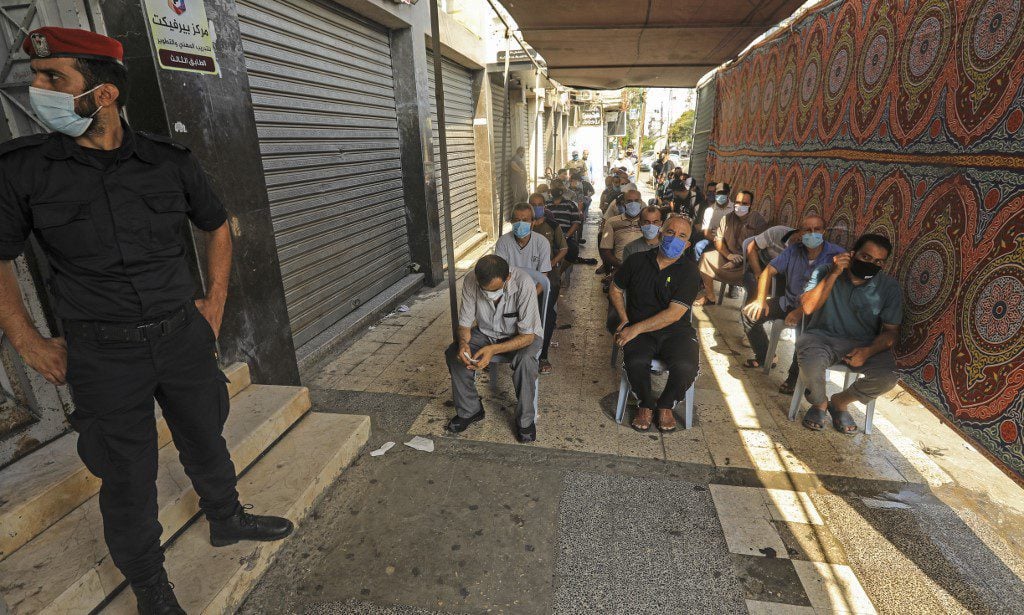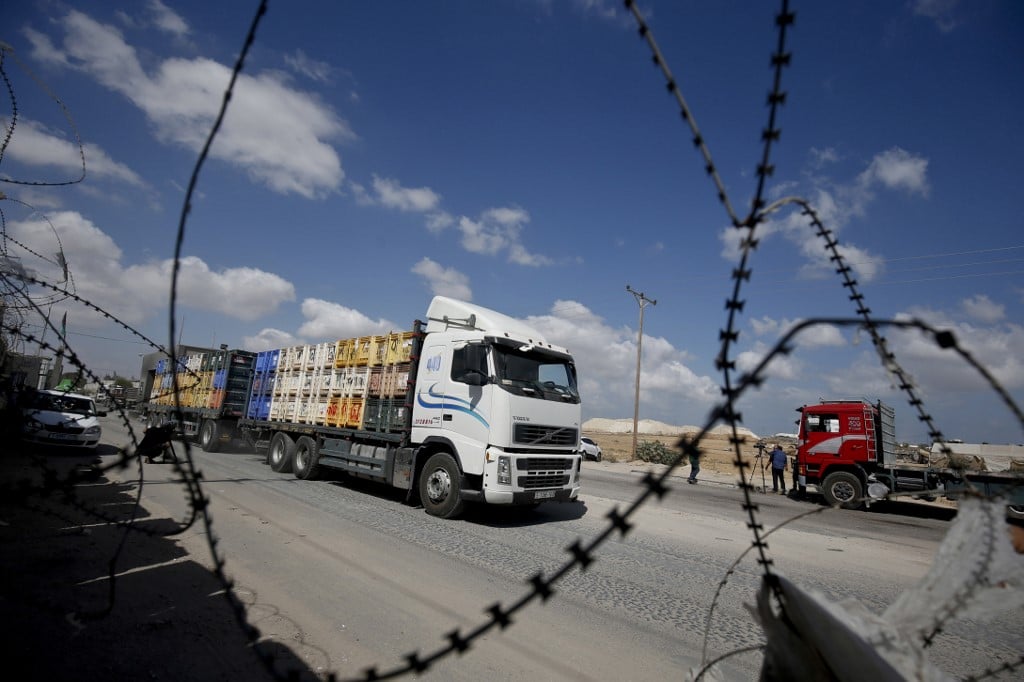
By: Nour Odeh
In his address to the United Nations Security Council on 26 October 2020, UN Special Coordinator for the Middle East Peace Process, Nickolay Mladenov said that the economic crisis facing the Palestinian government is severely exacerbated by its refusal to receive Palestinian tax revenues collected by Israel. Many international officials have voiced the same sentiment and called on the Palestinian government, publicly and privately, to just take the money.
Israel collects Palestinian tax revenue on behalf of the Palestinian government because it controls all the border crossings into Palestine. These comprise customs duties on goods destined for Palestinian markets, VAT taxation, fuel excise taxes and others. This is in accordance with an interim agreement signed, called the Paris Protocol. Israel also collects taxes and other fees from Palestinians in so-called Area C, which amounts for 60% of the occupied West Bank, but has withheld disclosure of how much it actually collects since the year 2000, costing the Palestinian treasury untold losses.
Israel does not offer this ‘service’ for free. It is compensated handsomely with 3% of the total tax revenue collected to cover its administrative cost. A World Bank report published in 2016 estimated that the Palestinian coffers lose $285 million annually from tax revenues collected at border crossing alone, including VAT. This amounts to 2.2% of GDP in Palestine (2016). The same report also notes that in 2014, Israel earned a whopping $63 million from handling fees of collecting Palestinian taxes, which in turn financed nearly one third of the Israeli customs and VAT department’s budget even though the share of Palestinian imports of total imports handled by Israel is merely 6%. The international organization’s recommendation at the time, which has been ignored by Israel, was to cut down this fee to 0.6% instead.
These agreements were supposed to last five years by which time a final agreement would be reached. They were never intended to be a permanent arrangement for the subservience of the Palestinian economy to that of Israel. Palestinian attempts to renegotiate the Paris Protocols have also been repeatedly rejected by Israel.
Tax revenues fund approximately 70% of the Palestinian budget. That is why some described the Palestinian decision to refrain from receiving this money as suicidal. But regardless the qualification, this decision was undoubtedly political and predictable.
The political context is Israel’s fast-track path towards formal annexation of the occupied West Bank or at least large and strategic parts of it. An emboldened Netanyahu is leading a government that has in its coalition agreement a commitment to annexation, with the full blessing of the Trump US administration. In fact, the Trump administration’s own so-called peace plan endorses the annexation of large swaths of occupied Palestinian territory and does not even offer Palestinians the promise of sovereignty or viability as a state. This dead-end destiny of the two-state solution was further validated by the recent signing of an agreement between the US and Israel that extends US funding to the occupied West Bank, in what the Palestinian leadership considered a preemptive recognition of formal annexation.

Israel had used Palestinian tax revenues as a tool of political and economic extortion on several occasions. In 2011, Israel froze transfer of tax revenues twice, including as ‘punishment’ for Palestine’s success in gaining full membership at UNESCO. This behavior violates signed agreements and Israel’s obligations under international law as an occupying power. Yet, it repeated with Palestine’s upgrade to observer state status at the UN (November 2012) and accession to the Rome Statute (January 2015).
Israel’s political exploitation of Palestinian tax revenues reached new painful levels in February 2019, when the Israeli government announced it would withhold approximately $140 million in Palestinian money. That amount was equal to what the Palestinian government spent in annual social services payments to the families of Palestinians detained, killed, and injured by Israel. These payments have been part of Palestinian social services since 1969, predating all agreements between Palestine and Israel. They also continued after the establishment of the Palestinian National Authority, becoming part of the Palestinian Basic Law. Yet in 2018, Israel’s majority-rightwing Knesset passed its own law outlawing the Palestinian law and imposing the fiscal “punishment.” This legislation excluded money transferred to the Israeli Prison Services’ canteens, from which Israel also pockets millions in annual profits.
Ironically, Israel has its own similar law, providing residents and citizens of Israel recognized as “Prisoners of Zion” or relatives of said prisoners or family members of martyrs with financial benefits.
The Palestinian leadership was outraged at this direct intervention in internal Palestinian affairs. It rejected receiving the tax revenues with any deductions because of the dangerous political implications.
Although this crisis was resolved after several painstaking months, the resulting shockwaves of these financial sanctions plunged the Palestinian economy into several crises.
According to UNCTAD, real GDP in Palestine grew by less than 1% in 2019. Even before the pandemic, forecasts for the Palestinian economy in 2020 and 2021 were grim, with GDP per capita projected to decrease by 3% to 4.5%. The international organization noted that Israeli restrictions and “leakage of fiscal resources” to the Israeli treasury stood at 3.7% of GDP or 17.8% of total tax revenues before the punitive deductions. Unemployment stood at 33% in 2019, while poverty levels also rose sharply.
These devastating consequences were a stark reminder to the Palestinian public and decision-makers that Israel’s grip on their lives, economy, and chances of development was absolute.
Faced with an iron-solid political impasse, including the real possibility of the two-state solution losing its very practicability or relevance, the choice for the Palestinian leadership seemed obvious. On 19 May 2020, the Palestinian leadership announced that it would suspend all relations with Israel, including security coordination and the receipt of tax revenues. The political message conveyed was ominous: The Palestinian leadership will not carry on with business as usual when Israel, with US backing, is openly and unreservedly carrying out its expansionist agenda and vowing to ensure that a Palestinian state is never established. Israel had to choose. Either it allows the Palestinian government to govern without obstruction or intervention or it must prepare itself to assume all the responsibilities of an occupying Power.
The results have been crushing. In addition to losing this financial lifeline, the Palestinian government continues to battle the devastating consequences of the COVID-19 pandemic. Internal revenue collection is at its lowest in twenty years. International financial assistance is the lowest in more than ten years. Depending on the forecasts, the pandemic is expected to cost the Palestinian economy anywhere from 7 to 35% of GDP. The World Bank expects Palestinian GDP to contract by 8% this year and the Palestinian government agrees.
For the Palestinian leadership, it is simply unthinkable to accept the political humiliation of taking whatever tax revenues Israel releases while ignoring the wider political context, which is nothing short of a death sentence to Palestinian rights. The harsh economic consequences of this Palestinian move are inescapable. Nearly 200,000 Palestinian civil and security employees have not received a full salary since May 2020, further slashing buying power and prospects of economic recovery.
However, Palestinian policy makers insist that this bitter pill is unavoidable. The international community must understand that improving conditions under permanent occupation is untenable. The goal is freedom from the occupation.
Without ending the Israeli occupation, the Palestinian leadership will continue to battle one economic crisis after another without any recourse. They point to conservative estimates of international studies exposing that the quantifiable cost of Israeli occupation to the Palestinian economy between 2000 and 2017 was $47.7 billion, nearly 330% of GDP in 2017.
For the Palestinian leadership, taking tax revenues from Israel while the latter vows to maintain this miserable status quo is acquiescence to permanent subjugation. It is simply not worth the limited and short-lived relief it would offer until the next crisis emerges. The Palestinian message is: the economic crisis is only one painful manifestation of the underlying political crisis, which is the continued denial of the Palestinian people’s right to control their own resources as a sovereign state.


